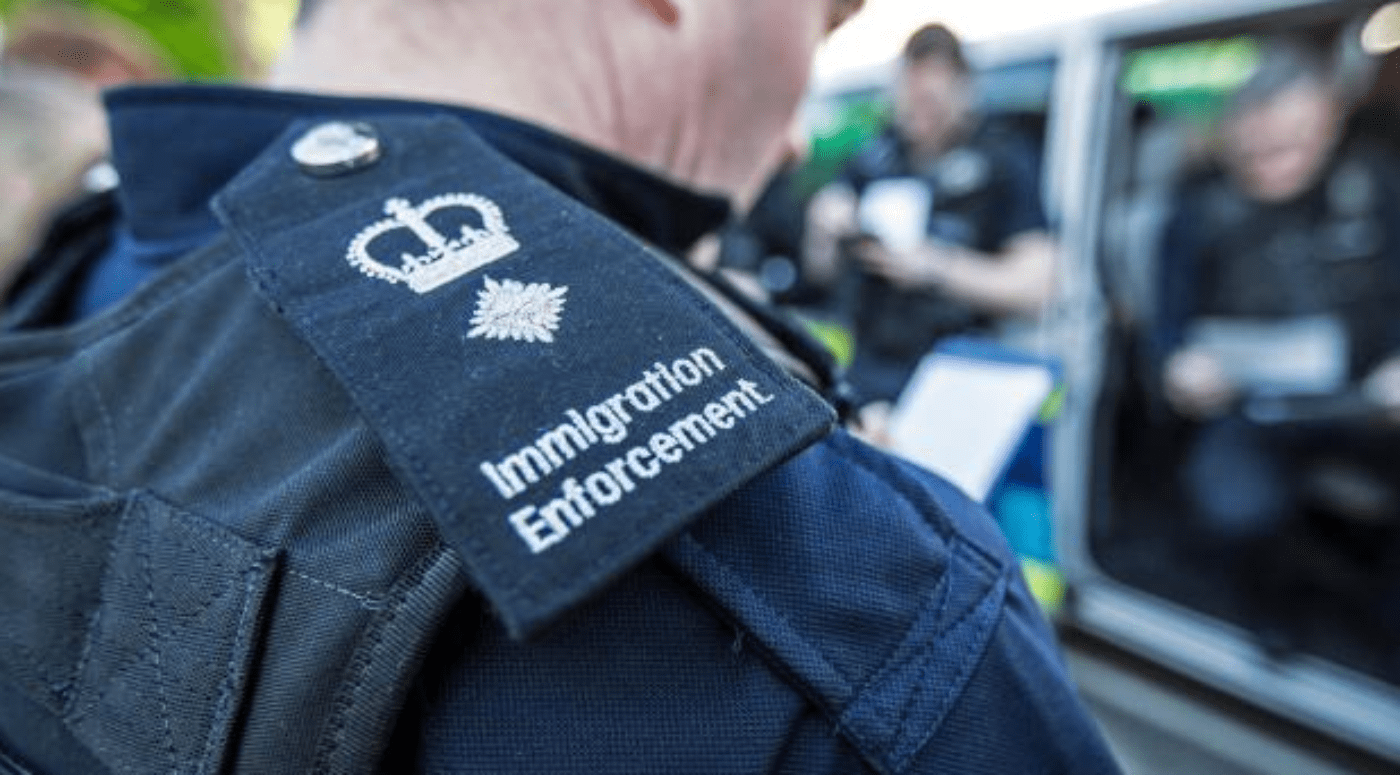

In the year ending June 2023, there were over 500 arrests in the UK related to assisting illegal entry or harbouring persons. If you’ve been arrested or charged with such an offence, you might understandably have a range of concerns and questions about what happens next. This article aims to explain clearly what steps you should take, including whether you’ll need a solicitor, potential defences you could use, whether you’re likely to receive bail, and other common worries people have in your situation.
Do I need a solicitor for assisting illegal entry or harbouring persons?
Navigating the complexities of immigration law combined with criminal law is challenging. Without expert advice, you may misunderstand important aspects of your case or inadvertently incriminate yourself during investigations or interviews. A qualified solicitor can provide detailed guidance on your rights, thoroughly explain the charges you face, and outline appropriate defence strategies tailored to your specific circumstances.
An experienced solicitor will also:
- Carefully examine all of the evidence against you and identify any weaknesses or inconsistencies.
- Represent and advise you during interviews with immigration officials or the police, ensuring your rights are fully protected.
- Clearly explain the potential outcomes and penalties associated with your particular situation.
- Advocate on your behalf during court proceedings, working to present a robust defence and achieve the best possible outcome.
Even if you believe the allegations against you are ungrounded or result from misunderstandings, the complex nature of these charges demands an informed legal approach, guided by an experienced solicitor.
What are possible defences for assisting illegal entry or harbouring persons?
Firstly, it may be possible to demonstrate that you acted without knowledge or genuine belief that the person involved was entering or remaining in the UK illegally. Since the prosecution must prove beyond reasonable doubt that you were aware of the person’s unlawful immigration status, proving a genuine lack of knowledge can often form a strong defence.
Another defence involves duress or coercion. If you were forced into committing the act through threats or intimidation, meaning your free will was genuinely overcome, you may be able to argue successfully that you acted under duress. To rely on this defence, you must demonstrate clearly that you faced an immediate threat of violence or serious harm which left you with no reasonable alternative but to comply.
Additionally, you may be able to argue humanitarian reasons or compassionate grounds in certain limited circumstances. Although humanitarian actions alone might not always fully justify assisting illegal entry or harbouring someone unlawfully, compelling factors such as saving a person’s life, providing urgent medical assistance, or preventing serious harm can influence sentencing decisions and possibly be viewed favourably by the court.
Will I get bail for assisting illegal entry or harbouring persons?
Each case involving assisting illegal entry or harbouring persons is considered individually by the courts, and several factors influence the decision to grant bail. These factors usually include:
- The seriousness and scale of the offence alleged against you.
- Whether you have previous convictions or a criminal record, particularly for similar types of offences.
- Your personal circumstances, including family ties, employment status, and fixed address in the UK.
- Your record of compliance with previous bail conditions, if applicable.
- The strength and nature of the evidence against you.
- Probability or risk of re-offending if bail is granted.
Your solicitor will present to the court arguments in your favour, highlighting factors such as stable employment, family responsibilities, lack of previous serious convictions, and your willingness to comply with bail conditions. The court may stipulate certain bail conditions to ensure compliance, such as regular reporting to a police station, restricted movements (including surrendering your passport), or requiring a surety as reassurance that you will attend court as required.
In some serious cases, particularly those involving allegations of organised crime or significant risks that you may abscond, the courts could refuse bail altogether and remand you into custody awaiting trial.
Will I have to go to court if I’m arrested or charged for assisting illegal entry or harbouring persons?
In most cases, offences involving immigration matters, such as facilitating illegal immigration, helping someone enter illegally, or harbouring someone unlawfully present in the UK, will typically result in court proceedings.
Whether or not you personally have to appear in court will depend on various factors, including:
- The seriousness of the accusation and whether it constitutes a minor or more severe breach of immigration laws.
- Any previous record you may have – including whether this is your first offence or part of a pattern of behaviour.
- The degree of your alleged involvement and whether you are seen as significantly facilitating or merely assisting inadvertently or minimally.
- The willingness of prosecution authorities (such as Border Force, Home Office, or the Crown Prosecution Service) to pursue formal criminal charges and trial proceedings.
- Your plea in response to the charges – pleading guilty generally still requires a court appearance, though hearings may be shorter or less complex.
Assisting illegal entry or harbouring individuals unlawfully carries potentially severe consequences upon conviction, including substantial fines and imprisonment. Because of this, prosecuting authorities will usually want a court hearing where evidence can be presented and decisions made regarding guilt and appropriate sentencing.
Will I go to jail if found guilty of assisting illegal entry or harbouring persons?
The courts will consider numerous aspects such as the scale of the offence, whether it involved financial gain, your role in any organised criminal network, and your personal circumstances, including whether you have previous convictions, as well as any available sentencing guidelines, when deciding on your punishment.
You could face:
- A maximum of 14 years’ imprisonment if convicted on indictment (a more serious criminal procedure).
- Up to 6 months’ imprisonment and/or a substantial fine if the case is heard summarily (less serious cases processed in magistrates’ courts).
Each case is unique, however, and the courts will weigh up mitigating factors – for instance, if you have demonstrated remorse, cooperated fully with the authorities, or played only a minor role – against aggravating factors, like a significant breach of trust, exploitation of individuals, or involvement in organised crime.
Will I go to jail if it’s my first offence of assisting illegal entry or harbouring persons?
When determining sentencing for first time offenders, just like for repeat offenders, courts will consider several key factors. These include:
- The specific nature of your actions, for example, the level of your involvement in planning and carrying out the offence.
- Your reasons or motives behind helping or harbouring an individual (such as humanitarian motivations compared to financial or organised criminal activity).
- The vulnerability of the migrant or migrants involved, especially if exploitation or harm was likely or occurred.
- Any related criminal issues, such as involvement with organised criminal networks or previous criminal convictions.
- Your personal circumstances and background, such as good character, previous law-abiding behaviour, and evidence of remorse.
If your involvement in assisting someone’s illegal entry or harbouring is deemed minor, and particularly if your motivation was truly humanitarian or compassionate rather than financial gain, the courts may consider alternative sentences besides imprisonment. Possible alternatives might include community orders, suspended sentences, or fines combined with rehabilitative measures.
Can I get Legal Aid for assisting illegal entry or harbouring persons?
Legal Aid is available in England and Wales for various criminal offences, including serious allegations such as assisting illegal entry or harbouring persons unlawfully residing in the UK. Eligibility for Legal Aid depends primarily upon your financial circumstances and the nature and seriousness of the offence.
To qualify for Legal Aid in a criminal case, generally two criteria must be satisfied:
- You must pass a means test, which assesses your income, assets and overall financial health. If your income and assets fall below certain threshold levels, you are usually eligible for Legal Aid.
- Your case must meet an ‘interests of justice’ test, meaning it is sufficiently serious that it would be unjust to require you to face proceedings without professional legal representation.
Cases involving assisting illegal entry or harbouring persons typically carry significant penalties, including heavy fines or imprisonment, and therefore, they frequently pass the ‘interests of justice’ criteria. The means test involves assessing details such as regular earnings, savings, investments, and whether you are receiving certain benefits. If your income exceeds the allowed limits, you might be required to contribute to the cost of your defence.
If you are unsure of your eligibility, consult a criminal defence solicitor who can advise you clearly about the availability of Legal Aid and assist you with completing the necessary application forms.
Where to get more help
Facing criminal charges is more often than not a stressful and overwhelming experience, but understanding your options and rights under English criminal law can provide clarity and reassurance. Our dedicated team of solicitors at Stuart Miller Solicitors are here to support and guide you every step of the way, offering expert legal services tailored specifically to your case. For confidential advice and professional representation, please contact the team today.
OUR COMMITMENTS TO YOU:
-
Responsive
A legal expert will consult you within 24 hours of making an enquiry.
-
Empathetic
We will always treat you with trust, understanding and respect.
-
Specialised
Your case will be handled by an expert who specialises in your type of offence.
-
Proactive
We will take early action to end proceedings as soon as it is practically and legally possible to do so.
-
Engaged
You will be kept updated on your case at all times. We will provide a named contact available to answer your questions.
-
Caring
We understand this is a difficult and stressful time for you and your family. Our team will support you every step of the way.
-
Tenacious
We will never give up on your case. We fight tirelessly to get you the best possible outcome.

